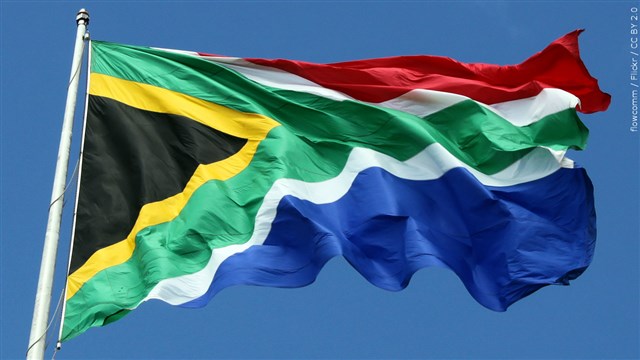During a wide-ranging interview with Africa Watch, Redge Nkosi, the Pretoria-based founder and executive director of First Source Money and Public Banking of South Africa, he referenced the recent Biden administration-sponsored U.S.-Africa Summit and domestic issues happening in South Africa.

He discussed the current president of South Africa, Cyril Ramaphosa, who has had trouble explaining why between $400,000-$5 million of unreported income was hidden away in a couch on a farm he owned. To add to what ails Ramaphosa, he was sued by former president Jacob Zuma, to “discredit him” in the ANC election, which he won, said Nkosi.
But, according to Nkosi, Africa’s most industrialized nations are harmed on Ramaphosa’s watch and the growing calamity is the result of the mismanagement of Eskom, the government run electricity supply commission. Nkosi is a former member of the Nelson Mandela and Thabo Mbeki administrations
“Blackouts in South Africa are new to us. We’ve never had them. We would only hear them happening in other places (countries), inside and outside the continent. So suddenly they began. Actually, it started around 2008, but not as much. They were sporadic,” he noted, “because industrialization had been intensifying.”
Nkosi added, “(It) seemed as though our capacity to increase power was increasingly strained or increasingly being overrun by the demand from the economy at large.”
According to a recent Bloomberg article: “Eskom CEO (Andre) De Ruyter Quits Amid Record South African Power Cuts.” Ruyter resigned his position at Eskom Holdings SOC Ltd., leaving the nation’s state power utility facing a potential leadership vacuum “as it struggles to tackle record blackouts and awaits government support to reduce its massive debt burden.”
But as Nkosi said, don’t believe all of what you’re reading in the “European press.” He made reference to Ruyters dismal record as CEO of packaging behemoth Nampak.
“New Eskom CEO Andre De Ruyter has been burdened with the hopes of a nation long tired of rolling blackouts and high annual tariff increases. With so much at stake, it’s not surprising his track record is being scrutinized in great detail. Sources inside the group whisper of the great job he did at Sasol when charged with turning around one of the energy group’s problem children, noted BizNews Radio.
“But that success was not replicated after he became CEO of troubled packaging group Nampak in 2014—long-suffering shareholders experiencing a 90 percent meltdown in the value of their investment while De Ruyter was at the helm,” the station continued.
Nkosi raised a question to Africa Watch: “Why would you bring on someone with such a dismal record? Remember Eskom (was) one of the best-run power companies, not long ago, in the world. South Africa’s industrial capacity in terms of power consumption has been massive. In many cases greater than companies in the EU.” Nkosi added, “It’s a massive company; it supplies power to much of the Sub-Saharan continent. And you wouldn’t in your normal self, select a CEO who has been a total failure in the previous life.”
“So, people think that he was appointed because the powers that be (White Europeans) wanted to use him to dismember, to destroy this power utility with a view to eventually privatizing this state-run utility.”
Nkosi stated there are many Black engineers with management expertise to choose a CEO from. “The minister for state-owned enterprises Pravin Gordhan, the Minister of Public Enterprises, has in words said, ‘they had adopted the World Bank approach to dismembering of a public utility.’” And Nkosi believes possibly, “no other person (other than) Andre Ruyter as CEO would be the best candidate to dismember this state entity Eskom.” He added, “And that’s what has been talked about all around. The push to dismember Eskom has been tremendous.”
Concerning the recent U.S.-Africa Summit, Nkosi likened it to “another Cold War.” The U.S. wants to see itself in glory in Africa and wants to push away Russia and China and the rest of the Eastern bloc and ensure the continent is continually depressed, he explained. The primary purpose of any American leader wanting to discuss anything, including Africa, is to continue to depress Africa, or impoverish Africa, so the U.S. can prosper, through access to Africa’s natural and mineral resources, Nkosi pointed out.
“Remember that the U.S. has failed in many, many aspects, (wants) to now re-colonize, to have its imperial power over Africa, as Africa is looking at things quite differently. So, the only way it can exert its influence is through the Ministry of External Affairs, your Secretary of State, your State Department, and the Department of Defense, Through (these) misguided stories like suppressing terrorism and beefing up security in Africa and all that nonsense.”
Follow @JehronMuhammad on Twitter













